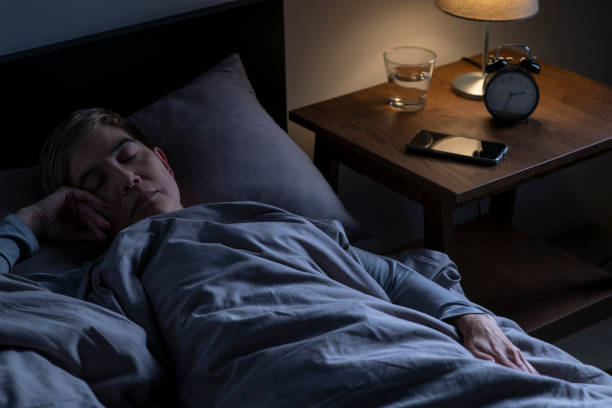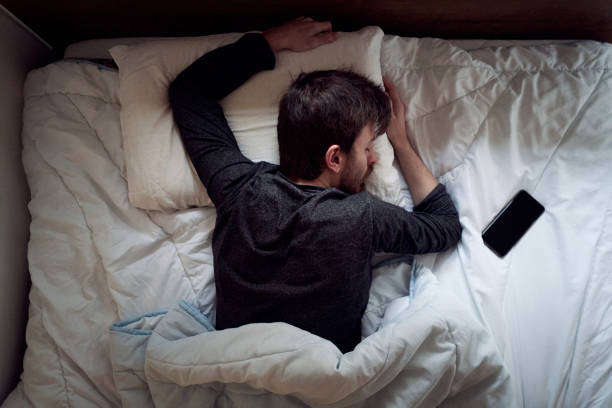Health
Find Out How Much Sleep is Healthy for You
The article delves into the intricate relationship between sleep and overall health, aiming to answer the age-old question: “How much sleep is healthy?” It explores the varying sleep needs across different age groups, from infants to adults, and delves into the impact of sleep duration on physical, mental, and emotional well-being.
In today’s fast-paced world, the importance of getting enough sleep cannot be overstated. But how much sleep is actually considered healthy? The answer may vary depending on factors such as age, lifestyle, and overall health. In this article, we delve into the science behind proper sleep and uncover the ideal duration for a restful night.
The Importance of Sleep for Overall Health
Sleep is essential for sustaining one’s overall health and wellbeing. During sleep, the body goes through a variety of important activities that promote physical and mental renewal. Adequate sleep is critical for the immune system, cognitive function, and hormone balance. It also promotes memory consolidation, learning, and emotional stability.
According to research, adults should strive for seven to nine hours of sleep per night, with teenagers and children need even more. However, it is important to consider the quality of sleep as well as the amount of hours. Sleep disruptions, snoring, and midnight awakenings can all have an impact on how healthy sleep is.

How Much Sleep Do We Need?
The optimum sleep duration varies by age group. Newborns and infants require approximately 14-17 hours of sleep per day, whereas toddlers require 11-14 hours. School-aged children normally need 9-11 hours of sleep, while teenagers should strive for 8-10 hours. Adults, on the other hand, require 7-9 hours of sleep per night to function well.
It is crucial to note that these are basic recommendations and that there may be individual differences. Some people may naturally need less or more sleep than the suggested amount. Paying attention to your body’s signals and modifying your sleep length accordingly is critical to achieving the ideal balance for your unique requirements to stay healthy.
Sleep Deprivation and Its Effects on Health
Chronic sleep deprivation can have negative repercussions for both physical and mental health. Inadequate sleep has been related to an increased risk of obesity, heart disease, diabetes, and stroke. It can also affect cognitive function, memory, and decision-making skills, resulting in lower productivity and a higher risk of accidents.
Furthermore, not getting enough sleep might have a severe impact on your mood and overall mental health. It has been linked to an increased risk of depression, anxiety, and other mood disorders. Sleep deprivation can also impair the immune system, leaving people more vulnerable to infections and illnesses.

Sleep Quality vs. Quantity
While sleep duration is crucial, quality is equally vital. If your sleep is fragmented or of low quality, even sleeping for the recommended number of hours won’t be enough. Deep, restful sleep is required for the body to heal and replenish itself.
Sleep problems, such as insomnia and sleep apnea, as well as lifestyle choices, such as excessive caffeine consumption, inconsistent sleep cycles, and pre-bedtime electronic device use, all have an impact on sleep quality. Creating a sleep-friendly environment and following proper sleep hygiene can help enhance the quality of your sleep.
Factors That Affect Sleep Quality
There are several things that can influence sleep quality. Stress and anxiety, for example, might make it difficult to fall and stay asleep all night. Consuming stimulants like caffeine and nicotine close to bedtime can also cause sleep disturbances. Noise, light, and temperature can also disrupt sleep quality.
Maintaining a consistent sleep schedule, creating a comfortable sleep environment, and practicing relaxation techniques before bedtime can all greatly enhance sleep quality. Establish a consistent nighttime routine and create a sleep-friendly bedroom environment.

Tips for Improving Sleep Hygiene
Good sleep hygiene is a collection of actions and habits that encourage healthy sleep. Here are some strategies to improve your sleep hygiene:
- Stick to a consistent sleep schedule, even on weekends.
- Create a relaxing bedtime routine to signal to your body that it’s time to sleep.
- Make your bedroom a sleep-friendly environment by keeping it dark, quiet, and cool.
- Avoid electronic devices, such as smartphones and laptops, before bedtime.
- Limit caffeine and alcohol intake, especially in the evening.
- Engage in regular physical exercise, but avoid vigorous workouts close to bedtime.
- Manage stress through relaxation techniques like deep breathing, meditation, or journaling.
By implementing these tips, you can optimize your sleep hygiene and improve the quality of your sleep.
Common Sleep Disorders and Their Impact on Health
Sleep disorders can significantly affect sleep quality and overall health. Some common sleep disorders include:
- Insomnia: characterized by difficulty falling asleep or staying asleep, leading to daytime fatigue and impaired functioning.
- Sleep Apnea: a condition in which breathing repeatedly stops and starts during sleep, leading to loud snoring and poor sleep quality.
- Restless Leg Syndrome (RLS): an irresistible urge to move the legs, often accompanied by uncomfortable sensations, leading to disrupted sleep.
- Narcolepsy: a neurological disorder that causes excessive daytime sleepiness and sudden, uncontrollable sleep attacks.
- Parasomnias: sleep disorders that involve abnormal movements, behaviors, emotions, or perceptions during sleep, such as sleepwalking or night terrors.
These sleep disorders can have a significant impact on an individual’s overall well-being and quality of life. Seeking professional help and treatment options can greatly improve sleep quality and alleviate associated health issues.

The Role of Technology in Sleep Disruption
In today’s digital world, technology has become an indispensable element of our existence. However, heavy use of electronic devices before bedtime can interfere with sleep habits. Smartphones, tablets, and laptops emit blue light, which decreases the production of melatonin, a hormone that regulates sleep-wake cycles.
To reduce the harmful impacts of technology on sleep, set a “digital curfew” and avoid using electronic gadgets for at least an hour before bedtime. Using features like night mode or blue light filters can also assist lessen screen time’s impact on sleep quality.
Sleep Tracking Devices and Apps
Sleep tracking devices and apps have been increasingly popular in recent years. These gadgets and apps utilize a variety of sensors to track sleep patterns, giving users with information about their sleep length and quality. While they can be beneficial for tracking sleep, keep in mind that they do not replace professional medical advice.
If you decide to use sleep tracking devices or apps, you must interpret the data they provide with caution. It is always recommended that you consult a healthcare professional for a thorough review of your sleep health.
Conclusion
To summarize, getting adequate high-quality sleep is essential for maintaining good health and well-being. The recommended amount of sleep to be considered healthy sleep varies by age group, but adults should strive for seven to nine hours every night. Chronic sleep deprivation can have negative consequences for both physical and mental health, but adopting appropriate sleep habits can lead to increased focus, mood, and immunological function.
Sleep disorders, lifestyle behaviors, and technology all have the potential to impair sleep quality and alter sleep patterns. By practicing appropriate sleep hygiene practices, reducing stress, and establishing a sleep-friendly atmosphere, you may enhance your sleep and receive the myriad benefits it provides.
Remember that quality sleep is not a luxury, but a necessity. Prioritize your sleep, and you’ll live a healthier, happier, and more productive life.
Trusted Health, Wellness, and Medical advice for your well-being



